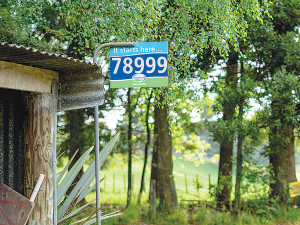Revamped Fonterra to be ‘more capital-efficient’
Fonterra chair Peter McBride says the divestment of Mainland Group is their last significant asset sale and signals the end of structural changes.
 Fonterra will no longer have to accept all applications from dairy farmers wanting to become shareholders and supply milk to the co-op.
Fonterra will no longer have to accept all applications from dairy farmers wanting to become shareholders and supply milk to the co-op.
Parliament has removed the open entry and exit provisions of the Dairy Industry Restructuring Amendment Bill (DIRA).
This removes the requirement on Fonterra to accept all applications from dairy farmers wanting to become shareholders and supply milk to Fonterra, or re-enter after leaving the cooperative.
Fonterra had been pushing for this change while independent processors like Open Country Dairy and Miraka wanted the provisions retained. Fonterra wanted the provisions changed to have more flexibility not to accept milk based on sustainability and environmental factors.
Agriculture Minister Damien O’Connor says the primary production select committee recommended that the open entry and exit provisions be removed.
“I agree with the committee on this point,” he says.
O’Connor says the dairy sector has changed considerably since 2001.
“The amendments we have made to this very aged legislation ensure this regulatory regime puts the sector in the best possible position in a post-Covid world,” O’Connor said.
“The Government is committed to building a modern and productive economy, and that means having fit-for-purpose legislation. We want to ensure the DIRA remains fit for purpose in a changing economic and social environment, and continues to deliver benefits O’Connor says the Government is determined to ensure the industry moves milk up the value chain.
“This change will enable Fonterra to invest in that higher-value end.
“The new and improved DIRA Bill will serve our dairy sector, and New Zealand, well for many years to come.”
The National Wild Goat Hunting Competition has removed 33,418 wild goats over the past three years.
New Zealand needs a new healthcare model to address rising rates of obesity in rural communities, with the current system leaving many patients unable to access effective treatment or long-term support, warn GPs.
Southland farmers are being urged to put safety first, following a spike in tip offs about risky handling of wind-damaged trees
Third-generation Ashburton dairy farmers TJ and Mark Stewart are no strangers to adapting and evolving.
When American retail giant Cosco came to audit Open Country Dairy’s new butter plant at the Waharoa site and give the green light to supply their American stores, they allowed themselves a week for the exercise.
Fonterra chair Peter McBride says the divestment of Mainland Group is their last significant asset sale and signals the end of structural changes.